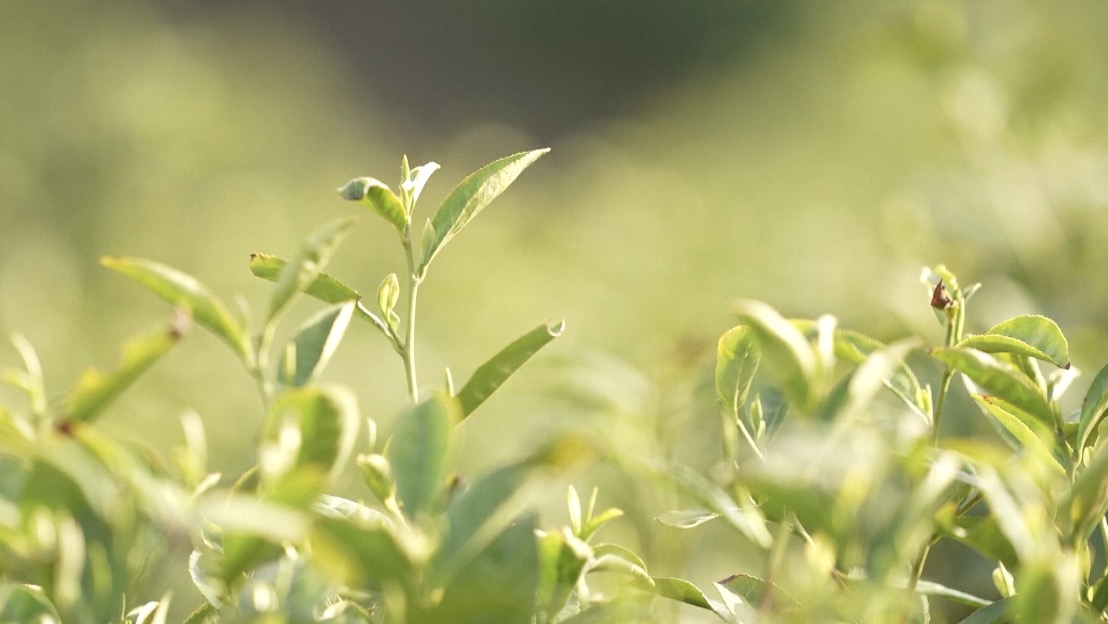00:52

Shangcheng County in central China's Henan Province is enjoying a bumper harvest of Xinyang Maojian tea, one of the 10 most renowned types of tea in the country.
It is generally believed in China that tea sprouts harvested around the Qingming Festival on April 5 have the freshest flavor. Although they are the most expensive, the price doesn't stop Chinese tea drinkers from pursuing a taste of spring.
In Shangcheng County, tea farmer Zhou Zhengxiang is going through the busiest months of the year, with the first green tea leaves on his 33-hectare farm ready for harvest.
"All the tea farmers here are racing against time to harvest the tea. They need to plant, pick, process and sell the tea in a span of one and a half months," said Zhou.
From picking to roasting tea leaves, Zhou is the fifth generation of his family to make Maojian tea. Today, modern technologies have been widely introduced into various stages of tea processing, making it easier to meet the huge demand. However, many farmers insist on producing tea using manual labor.
Zhou is one of the small number of people who continue to learn manual tea roasting skills. This is a tough job that can be very time-consuming, and the worker needs to adjust the roasting technique and time depending on their feel of the moisture content of the tea leaves.
However, Zhou thinks the extra effort is worth it, and he hopes Chinese traditional tea culture will continue to thrive. Believing that he could make more out of the plucked leaves, he set up a rural cooperative with local villagers in 2010 in a bid to help alleviate poverty.
"I think it's my responsibility to help our tea culture flourish. So, I never regret that I left the big city and returned home to become a tea farmer in a rural area. Now, more and more young people choose to come back and revitalize the countryside," said Zhou, who is also a manager of the local Qipeng Tea Cooperative.
The participation of the younger generation has injected fresh impetus into the local tea industry. Currently, there are more than 620 tea companies and rural cooperatives with over 14,000 hectares of tea farms in Shangcheng County.
Last year, 5.2 million kilograms of tea were produced locally, creating an economic value of 1.8 billion yuan (about $261.98 million). More than 120,000 residents have also been involved in the tea industry, earning income at their own doorsteps.
The county is now looking ahead at another year of bumper harvest and a promising future – hopefully with more industries and chances to come.
"So far, the quality of our tea this year looks quite good. And the price is rising, with an increase of 30 yuan per 500 grams. That's a good news," said Yi Xianhai, Party secretary of Denglou Village in Shangcheng County.
"We're also promoting the development of tea and tourism industries. There are several scenic spots in our county. We hope tourists come here to admire the beautiful scenery and enjoy a cup of fresh tea," said Feng Yizhong, a tea expert in Shangcheng County.
(If you want to contribute and have specific expertise, please contact us at nature@cgtn.com.)